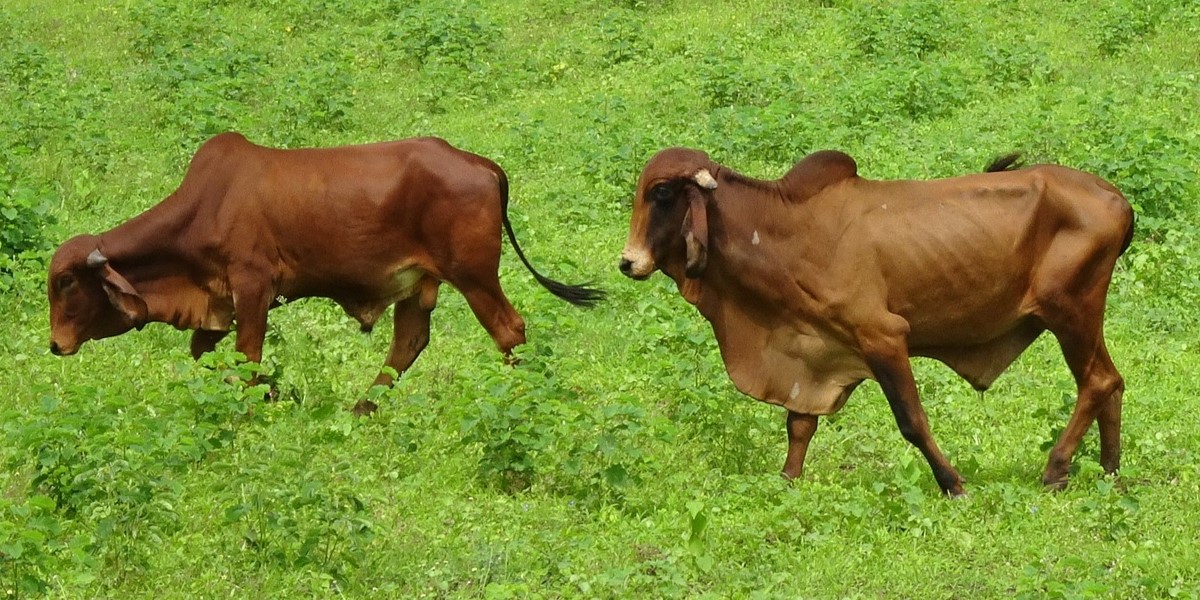The free vaccines promised by the government are not free; and there are complaints over compensation delay as well.

Karnataka farmers are claiming vets are asking ₹500 for a vaccine that the government is supposed to provide for free. (Supplied)
Farmers in Karnataka say government vets are demanding money for vaccinations distributed free by the state to fight an ongoing epidemic that is killing cattle across the country.
According to them, the vaccines go miraculously “out of stock” if anyone refuses to pay for them, even though they are free and distributed by the Karnataka government in response to the lumpy skin disease (LSD) epidemic sweeping across states.
Somu Patil, a cattle owner from the Belagavi district, said government vets demand around ₹500 per cow to administer the vaccination.
“If we refuse, they claim the vaccines are out of stock. We have to shell out ₹10,000 to buy the required dose in the open market for a three-day course,” Patil told South First.
The Animal Husbandry Department’s Belagavi office has denied the charge. “We are vaccinating free of cost and have already inoculated over 14 lakh cattle in Belagavi,” said Dr Rajeev NK, the cell’s district deputy director.
Rajeev, in fact, accused private vets of exploiting the farmers. “They are making money illegally. We are initiating action whenever a cattle owner files a complaint in this regard. We have issued strict orders to all the vets in the district,” he said.
“If cattle owners file a complaint with us and provide relevant evidence, action will be initiated against the vets accused.”
ದಿನಾಂಕ 19-12-2022 ರಂದು ವಿಜಯಪುರ ಜಿಲ್ಲೆಯ ತಿಕೋಟಾ ತಾಲೂಕಿನ ಹೊನವಾಡ, ರಾಮಪುರ ಗ್ರಾಮಗಳಲ್ಲಿ ಜಾನುವಾರುಗಳಿಗೆ ಚರ್ಮ ಗಂಟು ರೋಗದ ಲಸಿಕೆ ಕಾರ್ಯಕ್ರಮವನ್ನು, ಡಾ ಅಶೋಕ್ ಘೋಣಸಗಿ ಉಪನಿರ್ದೇಶಕರು (ಆಡಳಿತ) ರವರ ನೇತೃತ್ವದಲ್ಲಿ ಹಮ್ಮಿಕೊಳ್ಳಲಾಯಿತು.#Vijayapura #LSDVaccination pic.twitter.com/gFHkd5w5ee
— Dept of Animal Husbandry and Veterinary services (@AHVS_Karnataka) December 19, 2022
A highly contagious viral disease of cattle and buffalo, the lumpy skin disease is supposed to cause relatively low mortality.
However, according to Indian government data, the disease has killed over 1.55 lakh cattle in the country in recent months.
Data tabled by Union Fisheries and Animal Husbandry Minister Parshottam Rupala in the Rajya Sabha earlier this month showed the number of deaths in Karnataka at 12,244, putting it fourth on the list of states most affected by the disease.
Rajasthan, Maharashtra, and Punjab top the death count, in that order.
A veterinary doctor South First spoke to said there was no specific treatment for the disease, though the Union government has issued treatment guidelines, and vets are providing supportive treatment.
“There is no specific treatment for lumpy skin disease,” said microbiologist Dr Ranganath S, who is also a veterinary doctor. “The vet needs to provide antibiotics such as zinc and vitamins for immunomodulation in cattle. It is the animal’s body that has to fight the virus on its own.”
According to Ranganath, the “only option” to counter the viral disease is to develop herd immunity, something that was discussed at length during the Covid-19 pandemic.
“After vaccination, it takes a minimum of 21 days to develop herd immunity. Once this happens, we can tackle the disease, just as we did with Covid-19,” he said. “It is the only option.”
Ranganath also stressed the banning of animal trade and intensifying the vaccination drive.
Meanwhile, on 13 December, the state government announced a grant of ₹30 crore to compensate those whose cattle died because of LSD, to come into retrospective effect from 1 August. It sanctioned another ₹2 crore to combat the scourge.
The government is utilising these funds to provide medical care to the infected cattle. This also includes providing free vaccination and medicines.
Karnataka Animal Husbandry Minister Prabhu Chauhan told reporters that ₹20,000 would be paid per cow, ₹30,000 per bull, and ₹5,000 per calf.
This is way below market rates. A cow costs anywhere between ₹50,000 and ₹80,000, a bull can cost anywhere from ₹80,000 to ₹1.5 lakh, and calves cost between ₹25,000 and ₹50,000.
But Mallikarjun Padeppa, a cattle owner from Belagavi, told South First that all that the government had done so far was compile a list of affected cattle owners. “No one has received any compensation to date,” he said.
Padeppa, whose district accounts for a quarter of Karnataka’s total cattle deaths with a toll of 4,200 in a span of four months, stressed the need for the early release of compensation as farmers were going through financial distress after the Covid-19 pandemic.
“Farming suffered during Covid-19, and farmers do not have money to provide proper treatment to their cattle,” he said. “The government has to hasten the compensation process.”
But Additional Director for Livestock Health Dr PT Srinivas denied there was any holdup.
“We have already paid ₹7 crore to the affected farmers, and with another ₹30 crore released on 13 December, we will expedite the process,” Srinivas told South First.
Meanwhile, Karnataka’s weekly cattle markets, a regular event in its rural areas, have been closed for the past two months because of the disease.
As a result, said Padeppa, cattle rates have doubled. And when a farmer has any disease-free cattle to sell, there is no buyer because the fairs are not being held.
“We are not able to save our cattle even after spending thousands of rupees on vaccination and we can’t sell our cattle because the fairs have been banned,” Padeppa said.
Padeppa’s contention was disputed by Srinivas, who claimed no order had been issued to ban cattle fairs, and the state had, in fact, advised the local administrations to allow such weekly markets if the number of cases was low in their districts.
“We left it to the respective district administrations,” he said.

Jul 27, 2024

Jul 26, 2024

Jul 26, 2024

Jul 26, 2024

Jul 26, 2024

Jul 26, 2024